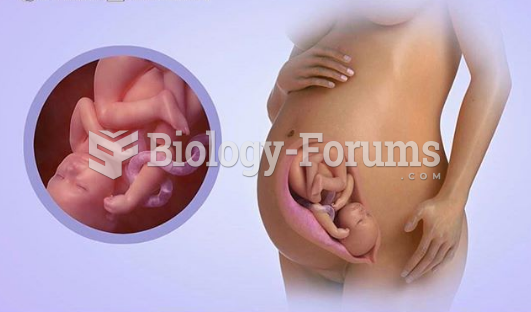|
|
|
Vital signs (blood pressure, temperature, pulse rate, respiration rate) should be taken before any drug administration. Patients should be informed not to use tobacco or caffeine at least 30 minutes before their appointment.
More than 2,500 barbiturates have been synthesized. At the height of their popularity, about 50 were marketed for human use.
The people with the highest levels of LDL are Mexican American males and non-Hispanic black females.
The B-complex vitamins and vitamin C are not stored in the body and must be replaced each day.
Certain topical medications such as clotrimazole and betamethasone are not approved for use in children younger than 12 years of age. They must be used very cautiously, as directed by a doctor, to treat any child. Children have a much greater response to topical steroid medications.







